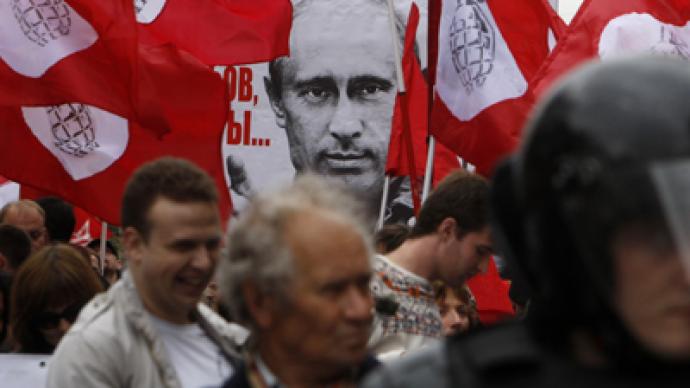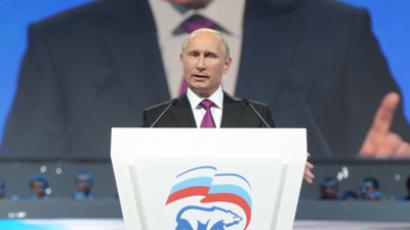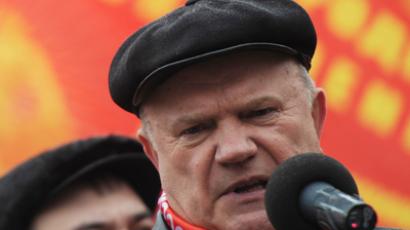Russians distrust authorities and protesters alike - survey

Russia is unlikely to witness a change of government any time soon through either the electoral system or a protest-driven overthrow, a recent public opinion poll reported.
The survey by the Center of Strategic Research points to two seemingly contradictory tendencies in contemporary Russia: The weakening of the Moscow-based protest movement, and a simultaneous drop in general trust in authorities taking place across the country.Like two previous major reports released by the center, the latest was commissioned by the Committee of Civil Initiative – a new NGO for professionals across civil society who do not wish to be associated with Russia’s current political parties. The committee is headed by former finance minister Aleksey Kudrin.The research was conducted in September in 12 focus groups across the Russian Federation. The polling showed that street protests in Moscow are undergoing a restructuring phase, forming separate groups based on their differing objectives. Mass rallies that were previously united by outrage over alleged electoral violations have split into separate interest groups, with each having their own slogans, speakers and figureheads. The researchers note that this fracturing of the protest movement could lead to further growth, as separate groups can be better vehicles for political organization.At the same time, Russians are quickly losing trust in authorities. The authors of the report said that ratings of trust and distrust in the country’s leaders are closing so quickly that they could equalize by 2013. The research paid special attention to the Russian middle class, saying that people with higher education levels and incomes have an extremely pessimistic outlook on the country’s current situation and future. The researchers noted that the middle class prefers getting their news from the Internet rather than TV, as they consider themselves smarter and better informed than most anchors and reporters they see on television.Trust in the Russian Orthodox Church has also diminished after numerous recent scandals, but still remains high, with 68 percent of those polled expressing a positive attitude towards the Church. However, an overwhelming majority of Russians still oppose the Church’s intervention in politics, saying that religion should be confined to issues of morality.Addressing possible future scenarios, the researchers found that armed unrest or “legitimate electoral revolution” seemed equally unlikely. Mass protest – triggered by growing economic and social problems as well as by the change of generations – was possible, however. A second possibility is that state authorities launch a voluntary reform program to counter public distrust. This reform would likely be mild, and only be manifested in changes to the government, not the powerful office of the Russian President. The third scenario is the most pessimistic: If the authorities and the people take no action, the Russian nation will collapse through a loss of labor skills, declining birth rates, alcoholism and a growing “syndrome of learned helplessness.”The Center of Strategic Research is known for accurately predicting public moods in Russia – It managed to forecast the rise of protests in Moscow and other cities after the 2011 parliamentary elections. The thinktank usually makes strong suggestions for change, and provides nightmare scenarios as the alternative.The Kremlin immediately dismissed the study’s pessimistic predictions. “We have never supported appraisals of the state of affairs in this country made with rosy eyeglasses on, but such pessimism that lacks any foundation whatsoever also must not exist,” Vladimir Putin’s press secretary Dmitry Peskov said.














